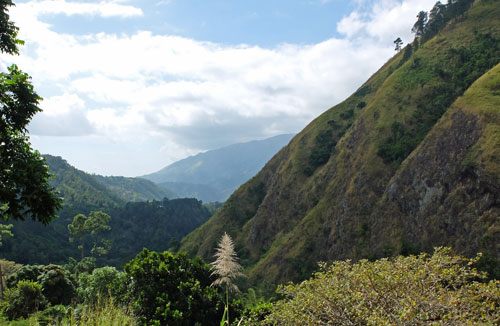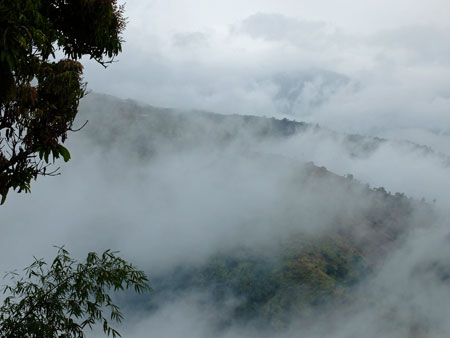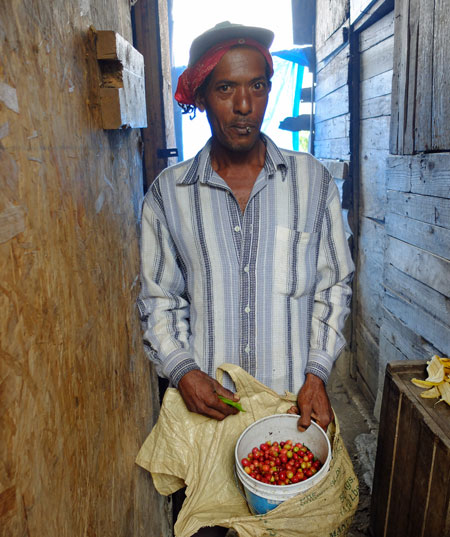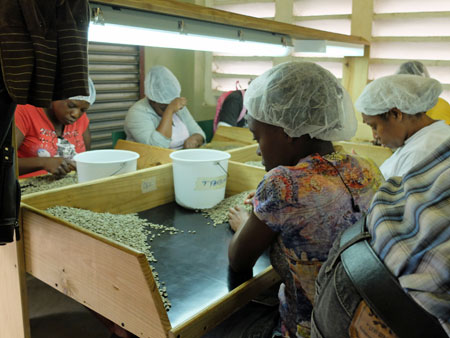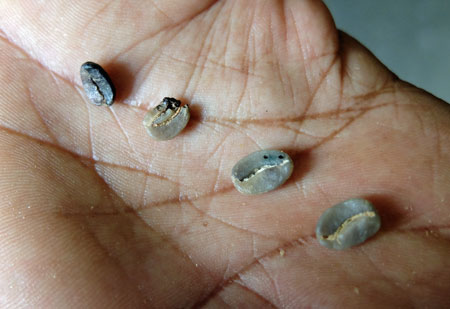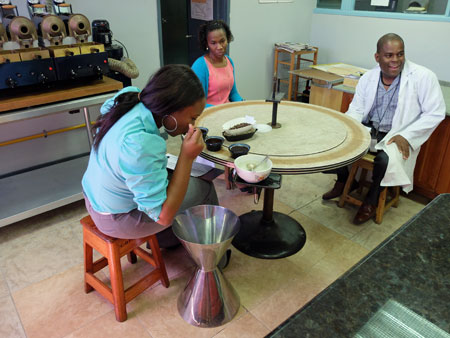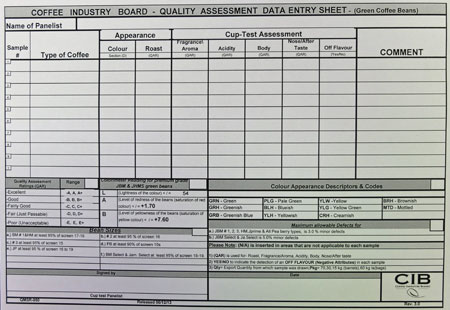Why Jamaica’s Blue Mountain Coffee is so good, and why it costs more.
During my recent visit to the Blue Mountains in Jamaica I had the opportunity to visit a number of coffee farms, processing plants and finally, a tour of the Coffee Industry Board of Jamaica.
Throughout my visit I had one question in mind, “Why is Blue Mountain Coffee so good, and why does it cost so much?” I guess that’s two questions, but as you’ll see, they are closely connected.
I have come up with 5 reasons. Maybe there are more, but these seem to be the big ones.
Reason #1 – The total output from the Blue Mountains is relatively low.
Compared to other growing countries, the size of the coffee-growing region in Jamaica is very small. Currently, they are producing between just 4 and 5 million pounds a year.
By way of comparison, Panama produces about 13 million pounds, and the Dominican Republic produces over 118 million pounds.
In addition, not all the coffee grown in Jamaica is classified at Blue Mountain Coffee.
That designation can be applied only to a small area in the mountains north of Kingston, and only to coffee that is grown at elevations above 3,000 feet.
Put simply, genuine Blue Mountain coffee is scarce. And, to make life tougher for those of us trying to find the coffee in North America, 80% of the crop goes to Japan each year.
Reason #2 – The growing conditions are unique.
Drive the roads high into the mountains above Kingston and you’ll feel the air getting cooler, find yourself enveloped in mist and see clouds dipping down into the valleys.
This is a unique coffee-growing environment, and these cool conditions mean that it take about 10 months from bloom to harvest. That’s about twice as long as in some other growing countries and regions.
Add this unique climate to the equally unusual volcanic soil, and you’ll understand why this coffee has a taste all of its own.
Reason #3 – Picking the coffee cherries is labour-intensive.
In many countries coffee is grown either on flat land, or on rolling hills.
This isn’t the case in the high reaches of the Blue Mountains.
There are no large, flat growing areas. Coffee trees are planted in small groups, where the terrain allows. And that ground can be as steep as 70 degrees.
On the day I was up on St. John’s Peak, at about 4,500 feet, it was raining and the ground was slick and slippery. I stood on the edge of the road and looked down at the coffee trees below. I wanted to climb down and take some photos, but my hosts dissuaded me, telling it was too dangerous.
They were right. But then again, this is where the coffee pickers work, climbing up and down those wet slopes, picking ripe cherries off the trees, and having to go back to the same trees time and time again, because the cherries on a single tree don’t all ripen at the same time.
So yes, this is a major consideration when it comes to the price of this coffee. Growing coffee high up in the Blue Mountains is extremely labour-intensive compared to elsewhere in the world.
Reason #4 – Quality control, Part One.
Once the coffee beans have been processed and are in their “green” state, they are graded by size and checked for defects.
First, they are graded for size, with beans that are either too large or two small being rejected. They can be kept for domestic use, but not for export. Typically, only 85% of the beans are good enough for export.
Next, they are sorted by hand, and all defective beans are rejected. In many countries this sorting process is now done by machine. But not in Jamaica.
Take a look at this photo.
An automated system would identify the first two beans on the left as being defective. But it would probably miss the third bean which, although it looks good enough, has a couple of holes in it, created by the larva of the coffee borer beetle.
The bean on the far right is perfect.
As with the growing and picking of Blue Mountain Coffee, the processing and sorting of the beans takes a lot of hands-on care.
Reason #5 – Quality control, Part Two
Jamaicans know they have a unique coffee, and they go to considerable lengths to ensure the quality of the beans that are approved to carry the name Blue Mountain Coffee. The same goes for the coffee processors.
But there is now another hurdle to jump.
Jamaica’s Coffee Industry Board not only educates the growers and processors, but has also established clear rules for the growing, harvesting, processing and roasting of the region’s coffees.
In addition, if an estate or processor wants to export its coffee, that coffee has to be tasted and evaluated by the Industry Coffee Board first.
And when they cup the coffee, it’s a lot more formal and rigorous that any other cupping session you may have seen or participated in.
Three cuppers taste each coffee. But before they taste it, they inspect the beans in both their green and roasted state.
And when they cup the coffee – which they do “blind”, without knowing which farm or processor the coffee came from – they complete a detailed evaluation form, which you can see here.
Regardless of the fame or reputation of the grower or processor, if a coffee isn’t deemed good enough, it is rejected.
Conclusions.
If you have tried Jamaica Blue Mountain coffee, you already know how good it is. And great coffee is worth paying more for.
But as I hope you can now see, the other reason for the price is due to the very hands-on approach that is required when growing, picking, processing and evaluating the coffee.
Other articles in this series:
My visit to Jamaica’s Blue Mountain Coffee region.
Jamaica Blue Mountain Coffee – from seed to harvest.
Processing coffee in Jamaica’s Blue Mountains.
How low-tech and high-touch makes Jamaica Blue Mountain Coffee so good.
NOTE: My visit to the Blue Mountain Coffee region wouldn’t have been possible without the generosity and hospitality of David and Marlene of SimpleIndustries.ca (where you can buy Blue Mountain Coffee), and the expert guidance of Basil Jones of Coffee Solutions Ltd. Thank you!
All photos and text © copyright Nick Usborne.
About the author: Nick Usborne, aka Coffee Detective, is a writer and long-time coffee enthusiast. Read more…
Before you go, sign up to receive the Coffee Detective Newsletter...
Sign up for occasional newsletters about the best coffees and brewing equipment. Plus special updates from the Coffee Detective Coffee Store…
